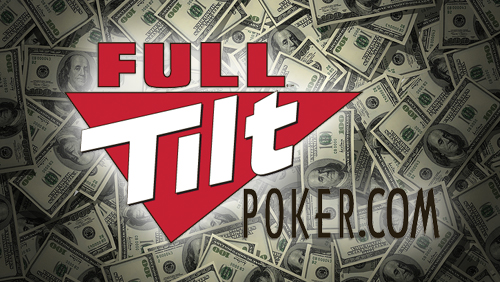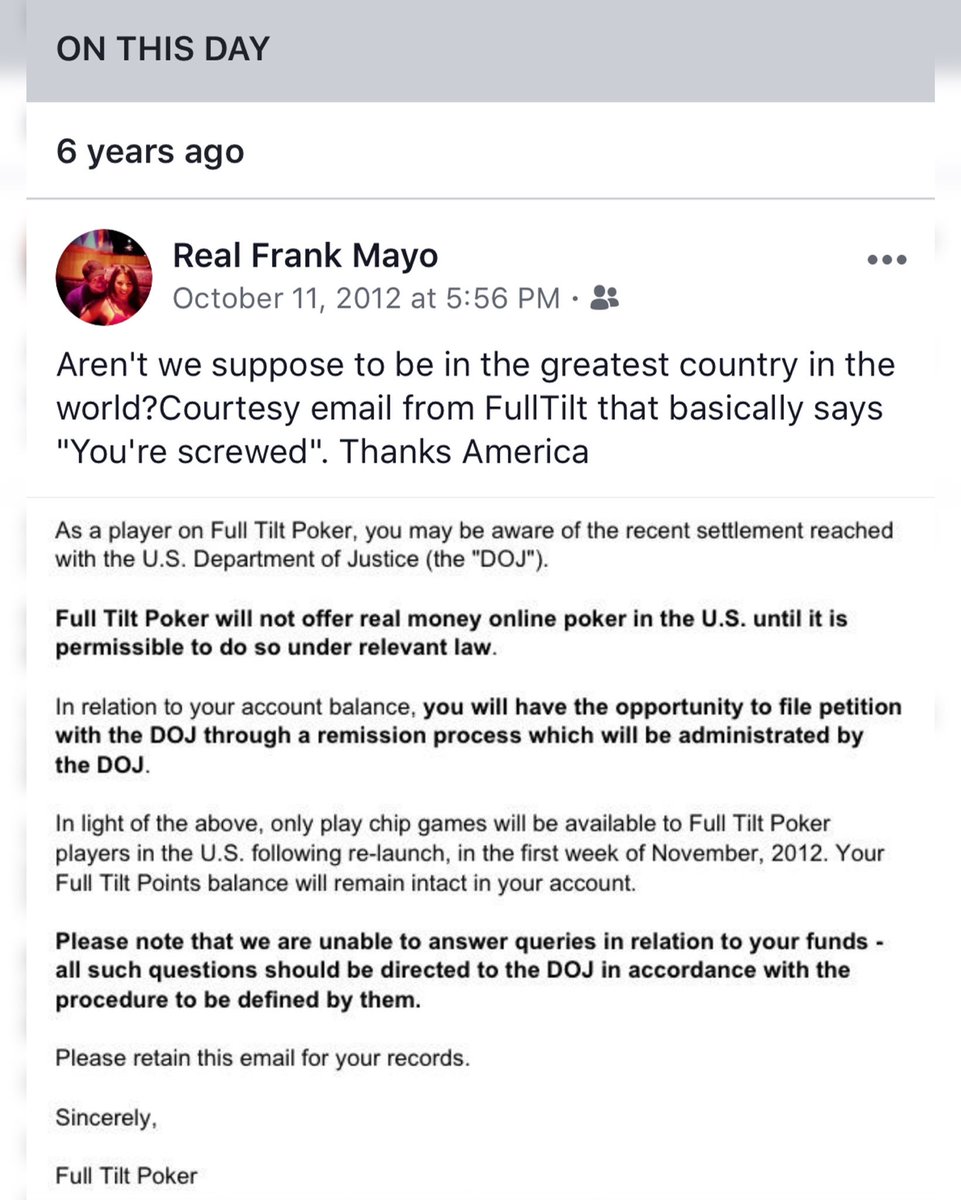Full Tilt Poker Frozen Accounts
After a key ruling last week, US gamblers hoping to retrieve $150 million stored with online gaming site Full Tilt Poker will have the opportunity to go after the company in court.
Full Tilt Poker
In April 2011, the US Department of Justice shut down the websites of the three largest online poker companies then operating in the United States. These included Full Tilt Poker, which the Justice Department described as a 'global Ponzi scheme' that assured players that their money was safe but that did not actually have enough funds to repay them. It was alleged that Full Tilt Poker credited 'approximately $130 million in phantom money to US players' online accounts.'
What Players Need to Know About Their Full Tilt and PokerStars Accounts Money, Full Tilt Points, self-exclusion and VIP status are some of the things you will need to consider before the sun sets on the Full Tilt software. That date: Monday, September 16th, when the claims process for former U.S. Customers of Full Tilt Poker officially opens. Starting on that date, American players with frozen balances at Full Tilt will be able to begin filing petitions with claims administrator The Garden City Group for. Apr 20, 2011 Federal prosecutors have inked a deal with PokerStars and Full Tilt Poker. Online Poker Players Will Get Their Money Back. 'No individual player accounts were ever frozen.
The Justice Department brought criminal charges, including those under the Unlawful Internet Gambling Enforcement Act, and issued arrest warrants for the owners and other individuals affiliated with the company. The US government also filed a civil suit that sought to force Full Tilt Poker and other defendants to forfeit illegally acquired assets. Following these actions, the gambling commission of the Channel Island of Alderney—where Full Tilt Poker was regulated—revoked the company's gaming license.
We want our money back
Adding to Full Tilt Poker's woes, a group of US poker players who held accounts with Full Tilt Poker then filed a June 2011 class-action complaint in Manhattan against the company and related individuals. In Segal v. Bitar, the plaintiffs seek over $150 million that they claimed to have lost in online player accounts that were suddenly no longer accessible. The plaintiffs allege that they cannot withdraw their money, even though the US government has not frozen individual player accounts; in their view, Full Tilt Poker is therefore free to reimburse players's funds. Indeed, visitors to www.fulltiltpoker.com now receive the message that the FBI has seized the domain name but permitted Full Tilt Poker to continue to use it 'in the United States to facilitate players' withdrawals of funds held by Full Tilt Poker.'
Last year, US Attorney Preet Bharara made a public statement that his office 'expects the companies to return the money the US players entrusted to them, and we will work with the poker companies to facilitate the return of funds to players.'
In August, the defendants moved to dismiss this complaint. They were represented by a group of lawyers, including technology firm Cooley LLP and Ifrah Law ('When the government comes knocking, clients turn to the team at Ifrah Law' ). Last week, Judge Leonard Sand in the Southern District of New York ruled that the plaintiffs's claims against at least some of the Full Tilt Poker defendants could proceed.

In their motion, the defendants had first attacked the Complaint by arguing that the Court lacked jurisdiction over them because they did not have enough of a presence in New York. The Court rejected that argument for the corporate defendants, finding that it could exercise jurisdiction over an Internet company that allowed New York residents to purchase and consume services while sitting in their New York residences. It did not matter that the Internet company was based outside of New York. But Judge Sand let the individual defendants off the hook, holding that those individuals—who played poker games over the Internet against New York residents and played other poker games that were broadcast live into New York—were too remotely connected to New York and to the alleged wrongdoing for the court to judge them.

The corporate defendants then attacked the complaint by arguing that the allegations against them were inadequate. The defendants had mixed success. Judge Sand allowed plaintiffs to pursue their claim that the corporate defendants had improperly taken their property; but the court dismissed plaintiffs's allegation of racketeering under the federal statute known as 'RICO.' Despite dismissing the racketeering claim, the court explained that plaintiffs' surviving claims would enable them to pursue their lawsuit for damages.
Full Tilt Poker Usa
Bottom line: in addition to the government's criminal and civil prosecutions, Full Tilt Poker faces a continued civil suit and potential class action from jilted customers for millions of dollars.
Despite the bad news for the company, the story isn't all bad for online gaming as an industry. In a sign of online gaming's resilience and profitability, French businessman Bernard Tapie is reportedly in talks to purchase the beleaguered Full Tilt Poker. And despite questions surrounding the legality of online poker, the Justice Department is attempting to facilitate the return of players's money—something not as unusual as it may seem, because federal anti-gambling law generally targets gaming businesses, not individual players.